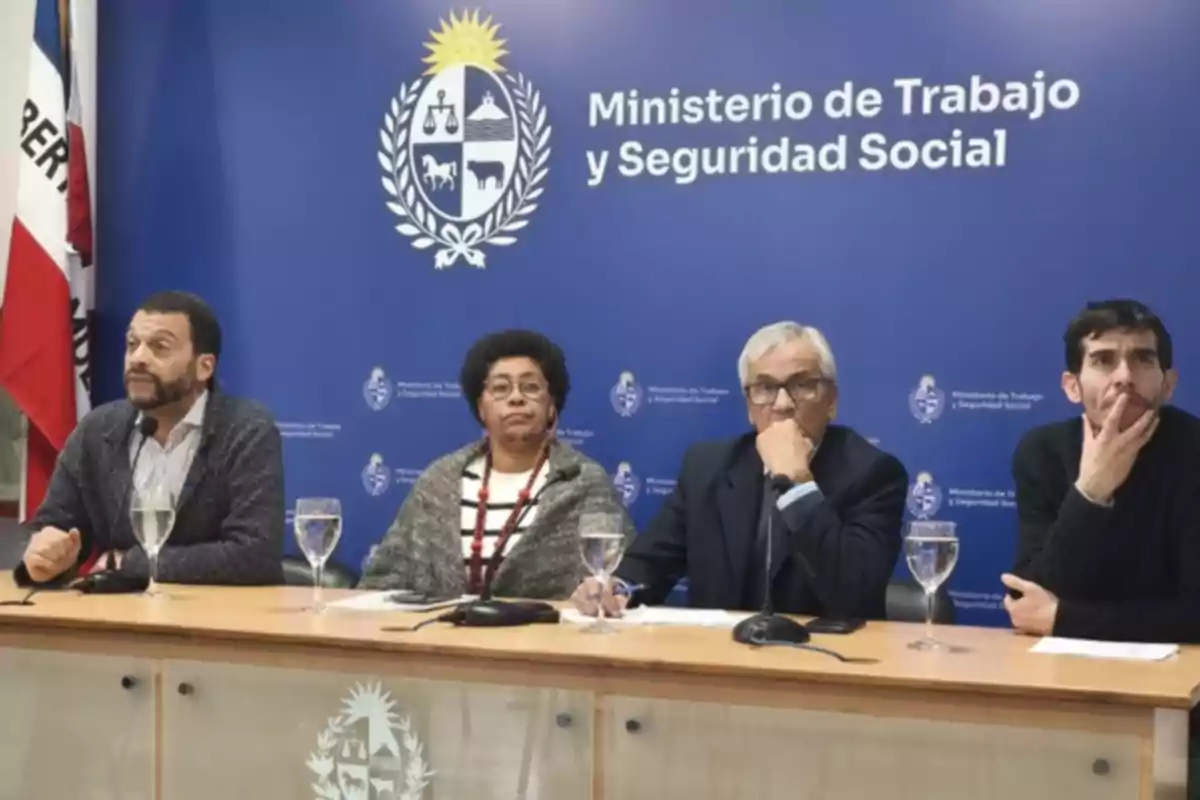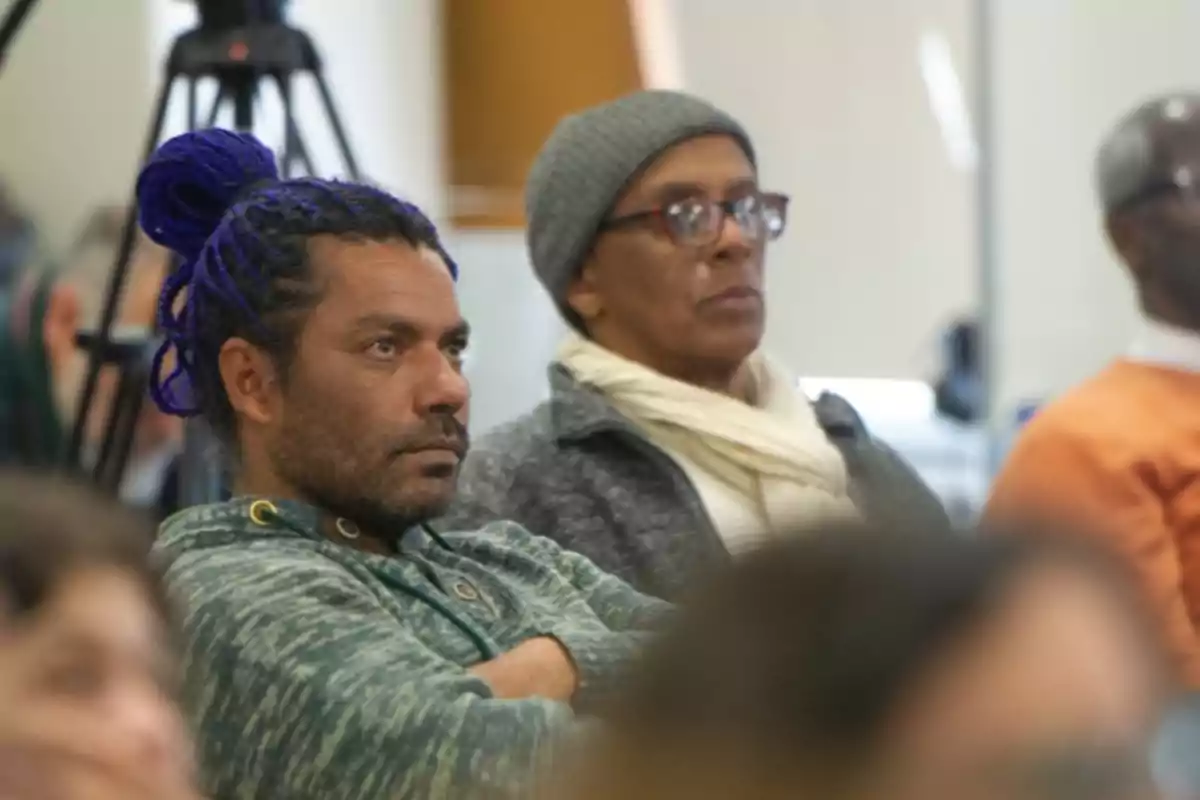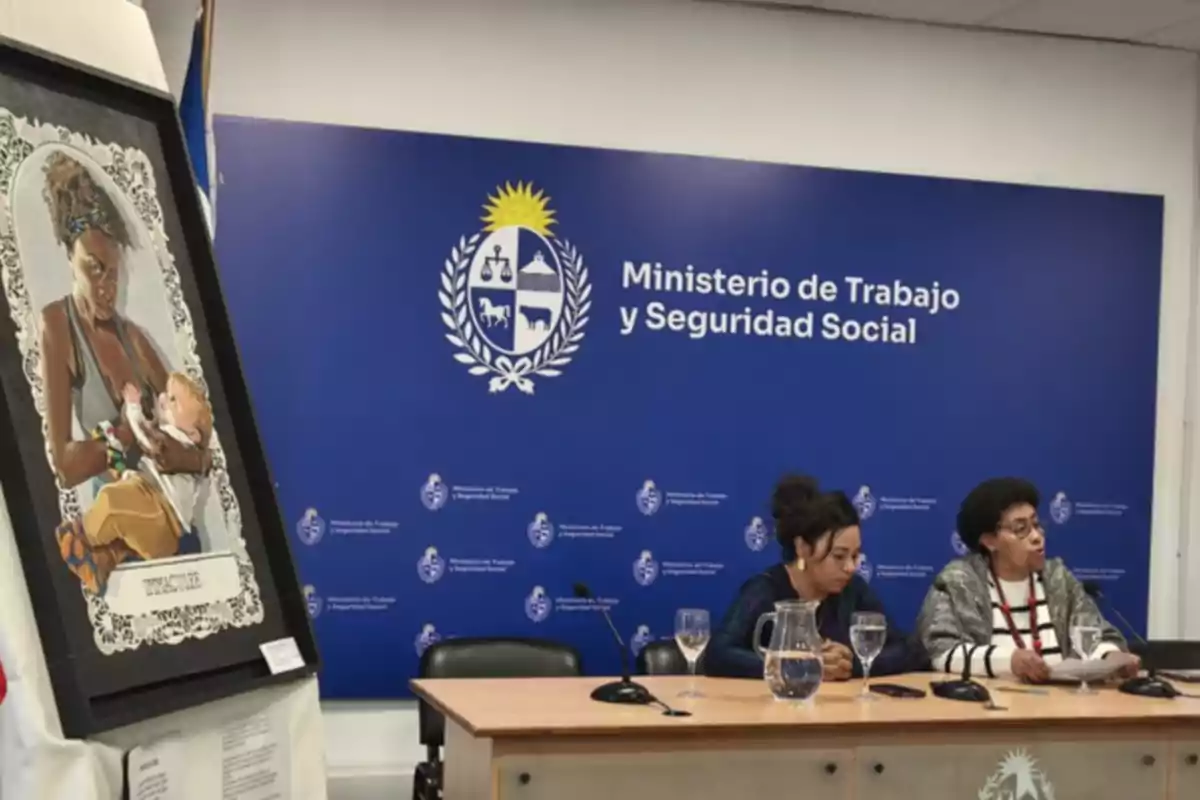
Unprecedented frenzy: Tania Ramírez demands that the government allocate an Anti-Racist Budget
Constant attacks on the pillars of society
The ultra-feminist, enemy of the white man, white woman, the "bourgeois" middle class, and academic, Tania Ramírez, participated virtually in the event "Afro-descendance and Employment" at the MTSS and demanded an Anti-Racist Budget for Universal Basic Income and access to land and housing, in the context of racial justice.
What did July, Month of Afro-descendance, leave behind?
On July 23, the Ministry of Labor and Social Security (MTSS) held the event "Afro-descendance and Employment," in which they alleged "inequality in the Uruguayan labor market", based on the results of a study —conducted in 2024 at the request of the United Nations Office of Development and Population—, which focused on the perceptions that people of African descent have regarding the fulfillment of their rights.
Aligned with the way of thinking that obstructs a country's progress and development, which considers work a right and not a duty, this government is moving toward the ethnic-racial mainstreaming of public policies, submitting to the "recommendations" of international organizations.
The announcement was presented by Claudia de los Santos, who from the MTSS Migration Unit indicated that 10.4% of Uruguay's population would be of African descent, being "in a greater situation of economic vulnerability" than the rest of the citizens.
According to De los Santos, poverty would be higher in Afro households, since the average hourly wage would be 29% lower compared to the "non-Afro population" and the unemployment rate for Afro women would exceed that of men.
You may also be interested in this critique of social democracy and its effects in Uruguay.
Discrimination and barriers?
"Despite the legislation, the Afro population continues to face a reality marked by inequality and discrimination," said De los Santos.

They consider ethnic-racial origin an impediment to professional development, therefore, this minority and privileged group will demand "deeper" affirmative actions to combat what they consider "structural racism".
Leticia Rodríguez, director of Public Policies for People of African Descent at MIDES, pointed out that Afro women are the last to be hired. She advocated for the Ethnoeducation meeting as an educational and professional solution.
You may also be interested in this warning about Afrocentric ethnoeducation.
What is the magic formula to combat the alleged lack of employment?
Based on a perception survey, they determined that 53% of respondents feel that the Uruguayan State doesn't comply with international recommendations. 49% attribute it to "institutional racism".
In that sense, Tania Ramírez was the spokesperson for the absurd demands of civil society, which include an Anti-Racist Budget, a gender violence law with an ethnic focus, basic income, access to housing, land, health, and anti-racist education.
The Minister of Labor, Juan Castillo, after hearing these delusions, stated: "I took note, so you can see that we're going to comply."
You may also be interested in this critical logbook on Orsi's government.
Uruguay, far from understanding effort as a moral virtue
Each government repeats the same ritual: politicians promising to "eradicate poverty", consulting progressive intellectuals who offer magic recipes.
However, eradicating poverty is a demagogic fiction. Poverty is not only economic, it is also cultural, moral, and spiritual.

Inequality is a consequence of human diversity
Even egalitarian systems, including communism, did not eliminate poverty. Because inequality also arises from different talents, decisions, and ambitions.
Thomas Sowell put it this way: "There is no such thing as equality of outcomes without inequality in treatment." Forcing that equality requires repression.
From there arise failed redistributive narratives, such as the wealth tax, which harm investment, employment, and savings.
Culture, morality, and poverty: censored common sense
Lawrence Mead has argued that the culture of victimhood and lack of self-discipline perpetuate poverty, beyond public policies.
His 2020 article in SOCIETY was censored and labeled racist, for pointing out that certain communities fail to adapt to the individualist values that allow progress in the West.
Ideological pressure turned a sociological analysis into an academic taboo, and Mead was accused of stigmatizing African American culture.
Human nature: the structural limit of utopia
As long as there are people who do not prepare themselves, become family-disintegrated, or reject effort, there will be poverty. Pretending otherwise is to ignore human reality.
Poverty is not only economic: it is also moral, cultural, and spiritual. No State will be able to replace the formative function of the family.
Evolutionary psychology confirms: human beings tend toward short-termism, self-deception, and avoiding effort. These can be mitigated, but not completely eliminated.
Promising to eradicate poverty is a lie. What can be done is to mitigate extreme poverty, promote merit, family, and real opportunity.
But for that, the technocratic fantasy must be abandoned and the obvious accepted: poverty is also an inevitable expression of human freedom.
More posts: